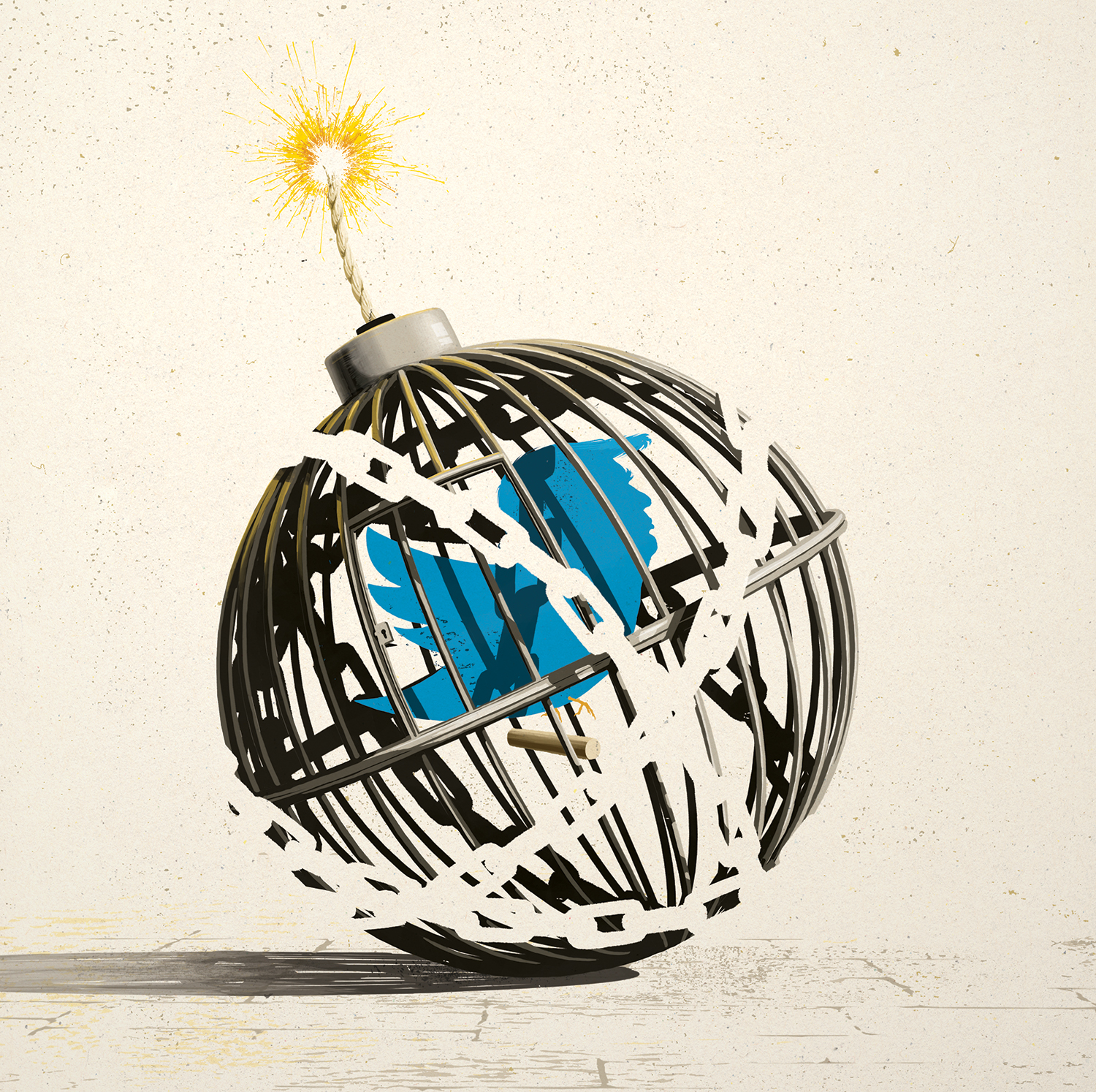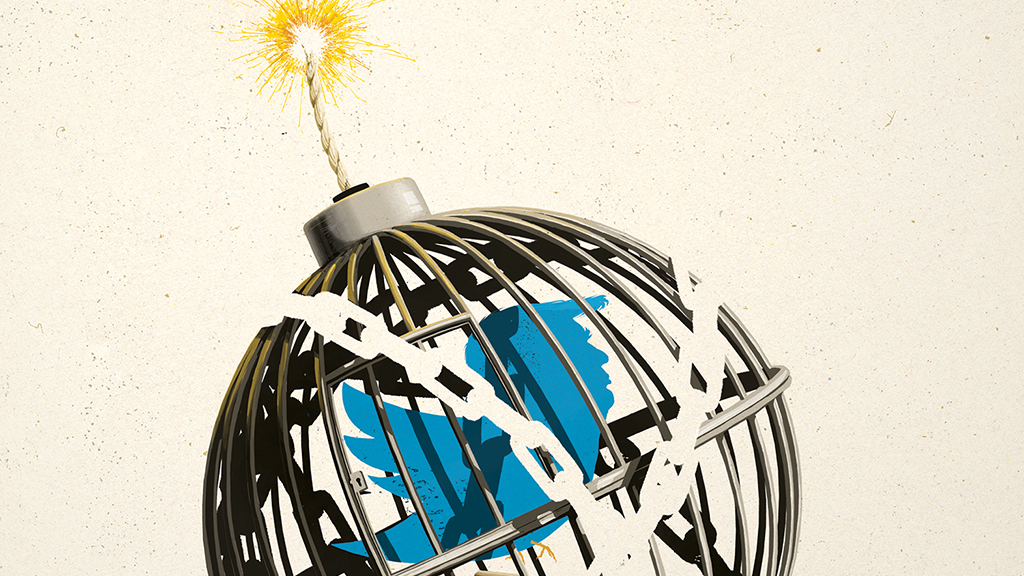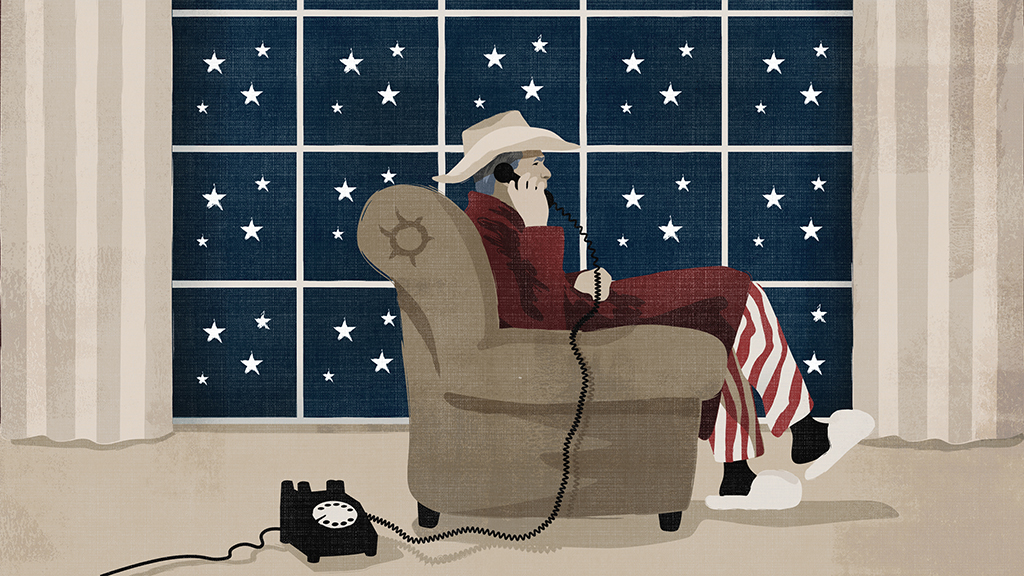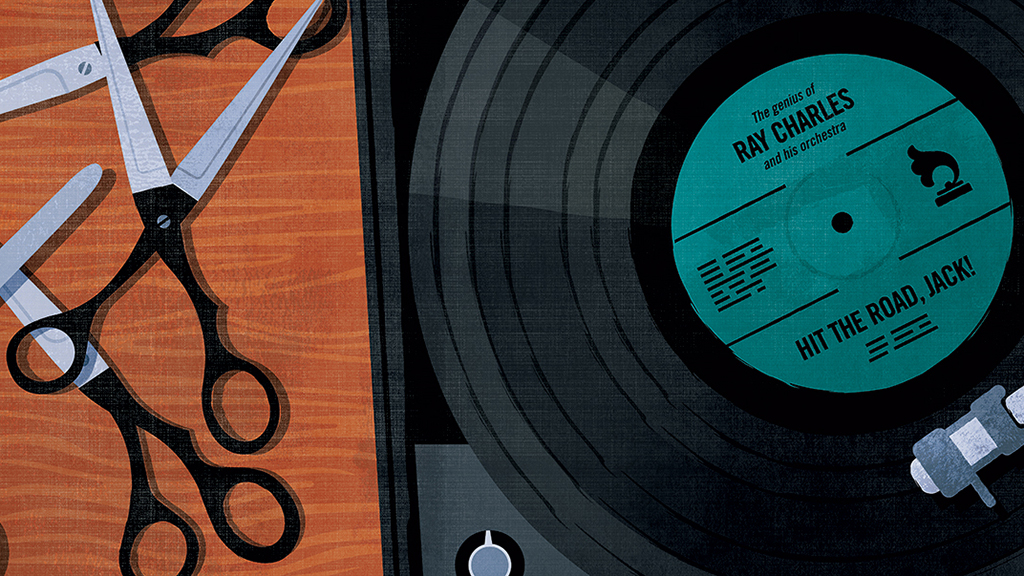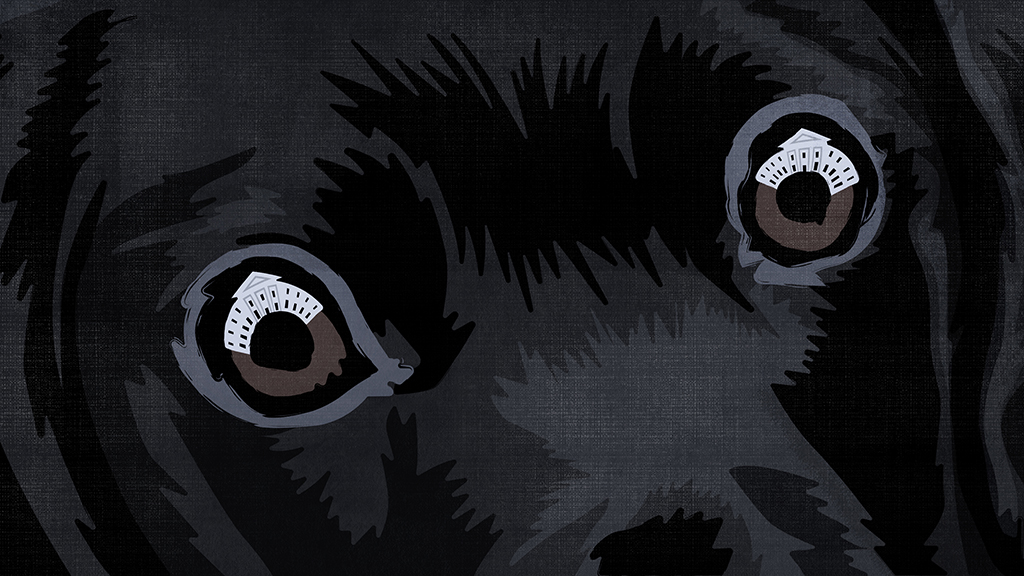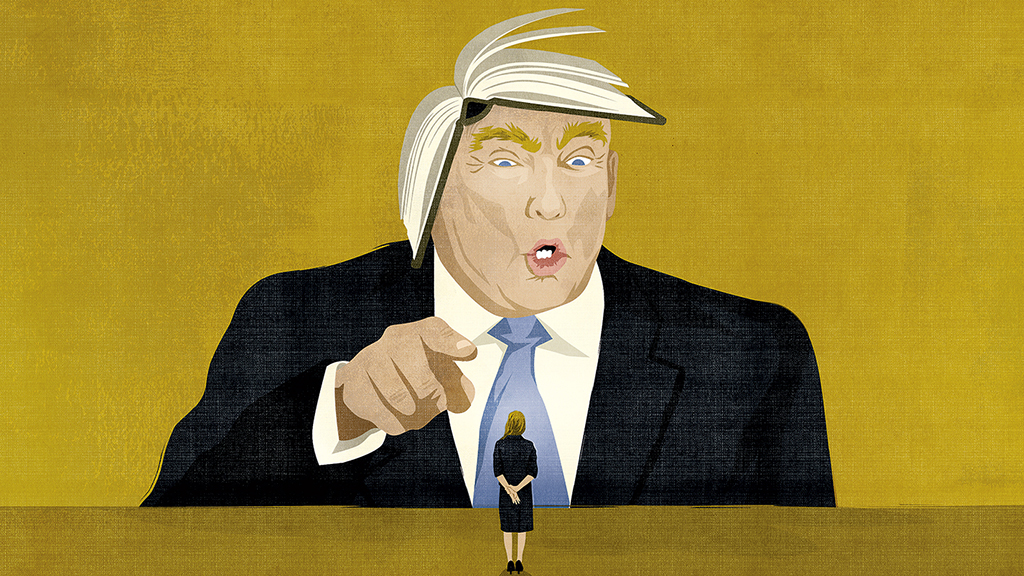This piece is part of the Trump Fiction Project from our December 2017 issue. To explore more of “Our Year of Trump,” a look at how our city has dealt with 12 exhausting months, click here.
John Kelly had always known the hard part would be telling his boss that Twitter didn’t exist anymore. Trump had been stoic when they showed him the drone-cam images of a devastated DC. He’d even suppressed a chortle at the smoking pit that had been CNN’s Washington bureau. “Just tell me Tapper was in the building,” he’d grunted, not batting an eye when Kelly’s “yes” was followed by the gloomy news that Jeff Sessions had been Tapper’s guest on State of the Union when the missiles hit.
Of course, like the rest of Manhattan, Fox News was gone, too. Times Square had been ground zero for that particular nuke. But Kelly, H.R. McMaster, and Jim Mattis—foreseeing Trump’s anguish at being deprived of Hannity and Fox & Friends—had stockpiled a vast supply of reruns of both shows at the Mount Weather Emergency Operations Center. By now, the President often seemed unaware that he was reacting with outrage or euphoria to foam-flecked instant analysis of events that had transpired in 2017, 2016, and 2015.
He’d even accepted that he’d be unable to play golf for the next 25 years, because the cloak of radioactivity shrouding the East Coast wouldn’t dissipate until then. As a sort of golf methadone, it was McMaster who’d thought of studding the corridors of Mount Weather’s underground bunker with brightly tagged croquet wickets whose maze Trump didn’t know had no end. He was exultant at getting to boast that he was the first man in history to have his own croquet cart and caddy, even though he often forgot Colonel Martin “Jiggs” Casey’s name.
Trump had seemed altogether unfazed when they told him he was now leader of a country with a living population of 600,000 hardy souls, most of whom had been on Navy ships and submarines or cruise liners when North Korea, China, Russia, Iran, and, peculiarly, Great Britain launched their coordinated attack that summer. Thanks to an oddity in the prevailing Caribbean winds, the most densely inhabited and prosperous urban area in the US was now San Juan, Puerto Rico.
“How many of the survivors follow me on Twitter?” he’d eagerly asked. “Well, not in San Juan—I don’t care about her.”
Trump had begun tweeting right away, his croquet mallet occasionally slipping from his armpit to hit the floor with a clatter when his thumbs grew too animated.
“#MAGA has whole new meaning today! We’ll not only build the Wall. We’ll build a glass CEILING!! Try breaking that, Crooked Hillary—if you’re still alive. Won’t cover PR, though. By executive Tweet, I hereby eject Puerto Rico from the US. Losers! SAD!! Trump will outlive them all.”
Sometimes Kelly wished Twitter hadn’t introduced its 280-character limit before they transported him to Mount Weather.
Recently, though, he’d grown bored with supervising the stream of false “likes,” retweets, and shout-outs of “Suck it, libtards! TRUMP 2020!!” that the President thrived on. So he’d decided to tell Trump that Twitter’s relocation from blasted-to-smithereens San Francisco to the Aleutian Islands had only temporarily spared the social-media giant from radioactive doom.
Kelly didn’t think he was exceeding his authority by giving Trump the bad news. That had always been planned as the final stage of Operation Covfefe. Over Mattis’s objections, he’d insisted on having discretion to implement it: “I’m the guy who has to live with him, Jim.”
As all three had expected, the news hit Trump like the world’s biggest divorce suit. (“I’m just sorry I won’t be in at the kill,” McMaster had said with a grin.) But as Sean Hannity praised Trump’s acceptance speech at the 2016 GOP convention for the hundredth time, the President disconsolately—and finally—surrendered his phone.
Slipping it into his pocket, Kelly made a suggestion: “Why don’t you play a little croquet, Mr. President?” In the corridor, he handed the object they’d all striven to possess for so long to Jiggs Casey. “Steady as she goes, Jiggs,” Kelly said. “Bury this far, far away.”
On his way to Mount Weather’s exit, Kelly passed the wing where Jared Kushner, Ivanka, and Donald Trump Jr. had been ensconced since August 6. “Look on the bright side,” he heard Donald Jr. bleat. “If we were up on the surface, we’d probably all be in jail.”
Ivanka whirled on him. “You really are a moron!” she screamed. “Where do you think we are now?”
Then Kelly stepped out into the bronze, gold, rust, and azure canopy of a gorgeous autumn day in the Blue Ridge Mountains. Once he was on the road back to Washington, Mattis picked up immediately: “Is it done?”
“Yes.”
“You know, I really thought he might figure it out when we included Merrie Olde England in the axis of evil,” Mattis said. “I did try to dissuade you from that.”
“Hell, Jim. Don’t you remember what made us launch Covfefe? It was the day we realized Mogul thought the UK’s nukes were controlled by Queen Elizabeth, for crap’s sake.” Kelly chuckled. “That’s why I couldn’t resist.”
Eventually, the nation’s capital came into view—serene, untouched, the Washington Monument tinged with pink by the loveliest sunset imaginable. Getting out his phone again, Kelly hit the direct line to the Oval Office.
After the coup, their troika had realized they’d need a civilian figurehead for appearances’ sake. But Kelly wasn’t sure they’d made the right choice. She was turning out to be a handful—feisty, opinionated, and hell-bent on running for President in her own right in 2020. He, Mattis, and McMaster would soon have to make a decision about that, as they’d gotten to enjoy running everything and she was a bit of a threat to that.
“This is the President speaking,” Carmen Yulín Cruz said. Then she laughed that wonderful laugh—the one the country had grown so disconcertingly smitten with once they finally heard it. “Does that idiot still think I’m in San Juan?”
This article appears in the December 2017 issue of Washingtonian.

